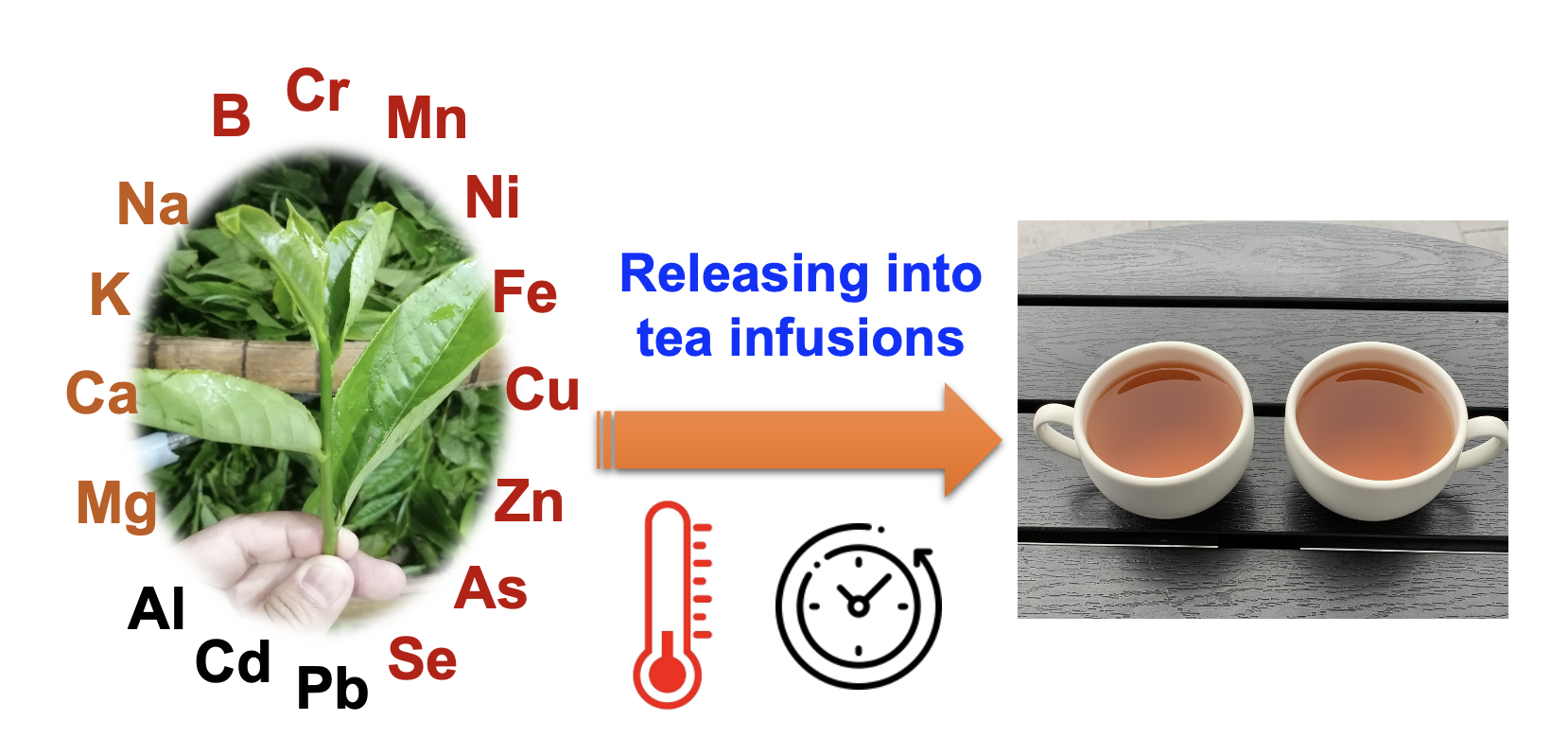Tea (Camellia sinensis L.) have been considered the second most popular non-alcoholic beverage in the world. Tea has high nutritional and medicinal value because it contains not only various antioxidant compounds, amino acids but also many essential macro-nutrients and micro-nutrients. In this study, the inductively coupled plasma-mass spectrometry (ICP-MS) was validated and applied to evaluate the release of elements, including macro-nutrients, micro-nutrients and non-essential elements in tea infusions prepared from various brewing temperatures and durations. The results showed that the increase in the brewing water temperature played a more important role in rising the percentage of element released into the infusion than enhancing the infusion durations at the brewing temperature of 70 °C. The release percentages of the micro-nutrients gradually decreased in the order of B > Mn > Zn > Cu > Fe > Ni, in which Fe and Ni exhibited their lower values compared to other elements. The highest Al concentration in tea water recorded in red tea samples (approximately 2.5 mg L– 1), under the permitted limits of WHO.

Author: MSc. Nguyen Cong Hau








